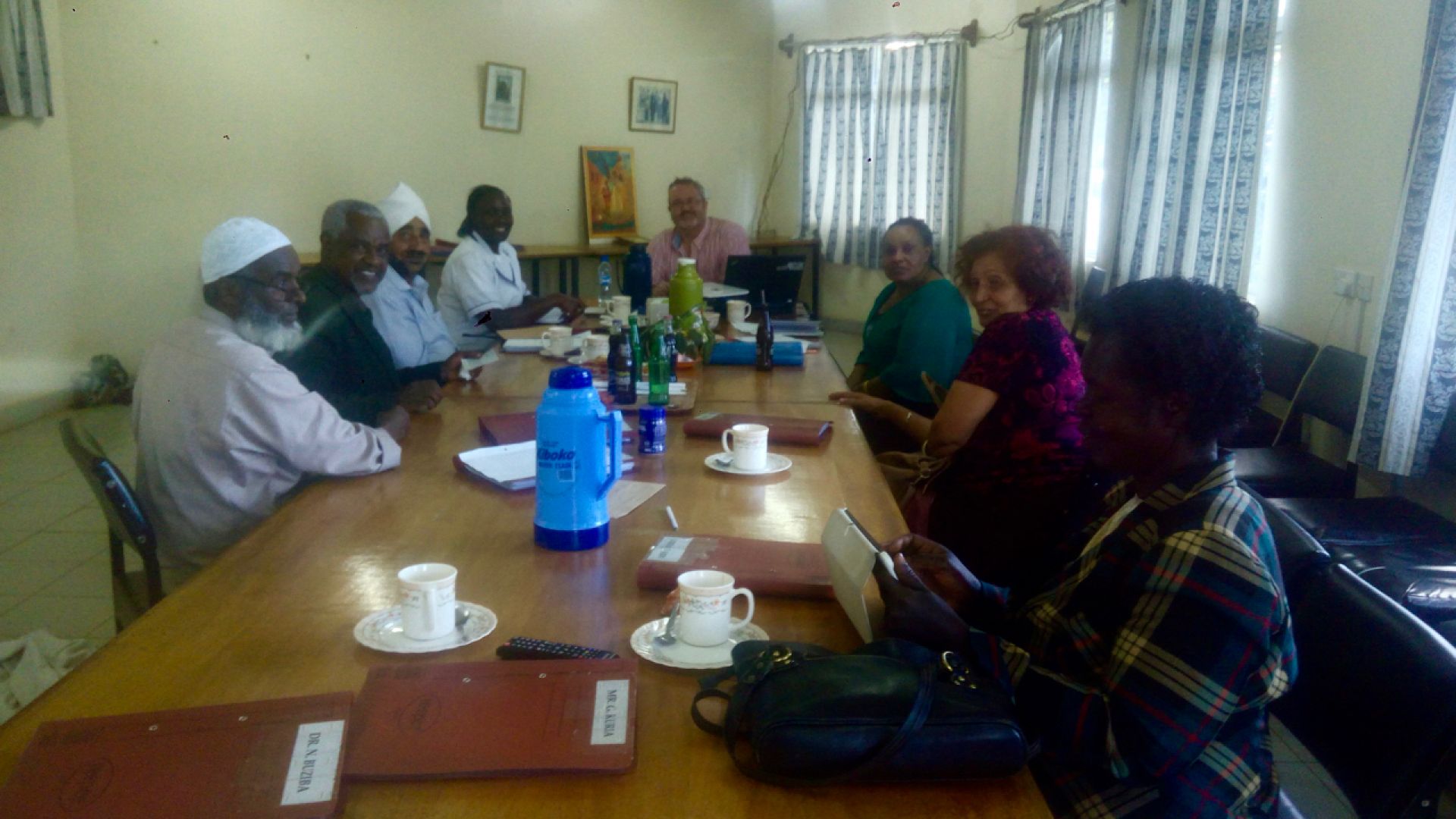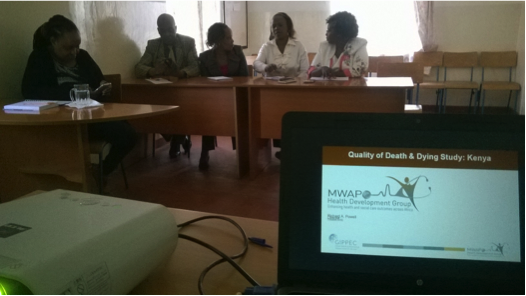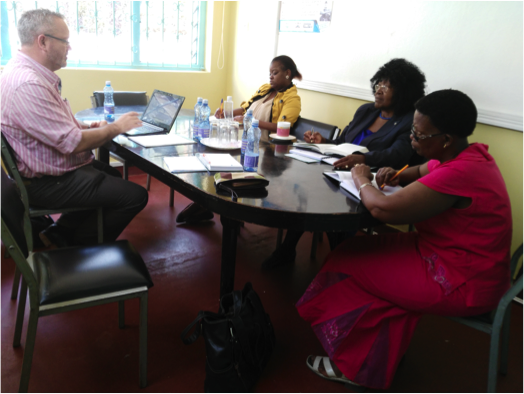
After months of planning across two continents by the collaborative research teams in Canada and in Africa, mid-October 2016 was a flurry of activity as Richard Powell (local Principal Investigator) and Nancy Gikaara (Research Assistant) traversed Kenya to launch the quality of death and dying (QODD) study in three local hospices (Eldoret, Nairobi and Nyeri) and at the national palliative care body, the Kenya Hospice and Palliative Care Association (KEHPCA).

The meetings were a necessary prerequisite to ensuring the study will be implemented to plan. Intended to first brief the senior management team (SMT) at each collaborating organization, the interactive presentations made by the team were also to secure buy-in to the study, including its rationale, relevance and potential utility, and to discuss openly and address any local reservations or challenges to the study’s logistics.
The SMT members present at the meetings varied, but always entailed the chief executive so the strategic value and operational impact of the study were understood. Reflecting on their trip to Eldoret Hospice, Richard recalled:
“Following a grueling seven-hour drive from Nairobi, which meant we were unavoidably late for the launch meeting, we were delighted to be greeted so warmly by the entire hospice Board of Governors at Eldoret Hospice. We had a very productive meeting, with the board showing great interest and asking many questions of the team.”

The feedback from SMT members was universally positive and captured succinctly by Dr Sirengo, who remarked following the start of data collection at Nairobi Hospice, “The findings from the research will provide evidence about the quality of the service we offer to patients and their families. We look forward to knowing how the experience of palliative care was for them, with the evidence given from family members about their experience enabling us to know what went well and not so well and thereby help us improve our services accordingly. Secondly, the evidence will hopefully point out areas for future research. Consequently, we see this research as an opportunity for laying the foundation for future networks and collaborations. It all looks exciting and very promising.”
These views were echoed by Dr Zipporah Ali, the Executive Director of KEHPCA:
“I am looking forward to the QODD study. So far, there has been no study of this sort in Kenya and it will therefore be very enlightening to health care professionals, care givers, families, the public, policy makers and service providers. Understanding and documenting how palliative care patients die is important as it will address challenges and areas that may need improvement. A society is judged by how it treats it dying people. We need to treat our dying with respect and dignity and provide the best possible palliative care for them and their families.”
There is clearly a gap and an opportunity to advance palliative care research in the country in a more structured and longer-term manner, with multiple palliative care units nationally (in addition to those involved in the QODD study) presently under-researched despite the wonderful opportunities to access diverse patient, caregiver and professional populations, the rural-urban situational diversity and the mix of service providers. Data generated by research among such clinical care sites has the potential to provide the necessary evidence to inform and influence policymakers as well as initiate the necessary policy and governance framework to support palliative and supportive care services in low and middle-income countries like Kenya. The QODD study is a first step on that important road.
As the study proceeds, we will provide regular updates on its progress, as well as the profiles of those undertaking the work and the participating organizations and their lead personnel. Stay tuned!


-300x300.jpg)